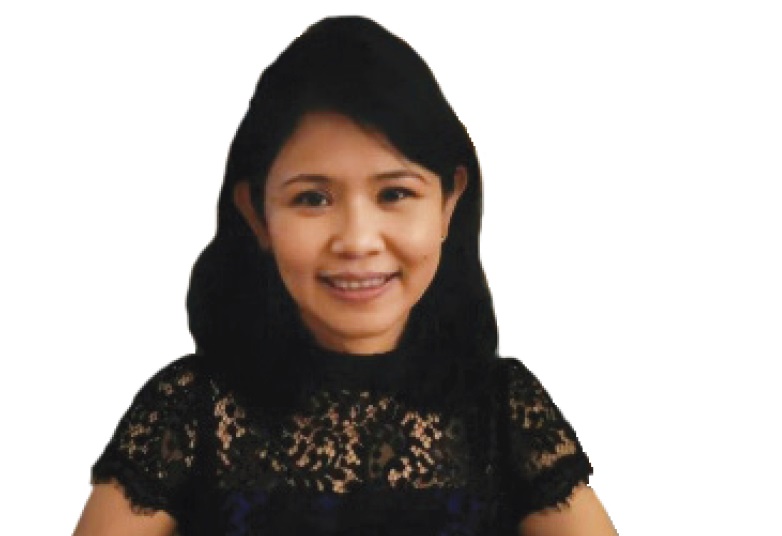Don’t we belong to each other?
The truth is that we must remind ourselves that there are no insignificant people in this world, and a diagnosis, disease, or disability does not reduce the value of a person.
Mar 22, 2025

Dancing with Dementia - Dr Cecilia Chan
Sally (not her real name) is living with a diagnosis of dementia. She failed her cognitive assessment test, and if we rely on the assessment score, she would be categorised as having early advanced dementia.
How would you support Sally based on her test result? At times, Sally cannot recognise her daughter or son or is unsure if she has taken her meals. Sally cannot recall who brought her to our centre a minute ago. She may get disorientated with time, thinking that it is already late at night when it is only afternoon. It is obvious that Sally is experiencing some loss. However, Sally is also a woman, a mother, a wife, a grandmother, and a friend. Such roles can only be played with support. Can you be a wife to a husband who has left you? We all live in an interrelated community, as we are social beings.
Despite failing her cognitive assessment test, Sally could teach us how to grow sweet potato leaves, how to harvest them, and how to cook them. She may not be able to label the fruit as papaya, but she can advise us that the papaya tree is not bearing fruit because we are not watering it regularly and the leaves look dry. If we had relied solely on the assessment results, we would have missed all her retained skills and abilities.
My concern is that there is little space for those living with dementia if we define them by their defects and reduce them to disease stages. It is not uncommon that we treat these stages as a way to determine their individual needs, remaining capacities, or emerging desires. But putting humans into such boxes is not helpful and often results in frustration for all parties involved.
When we look at dementia through a purely medical lens, what we see is an individual’s problem that medicine can't cure. The bio-medical model sees purely deterioration and loss. What if we look at it differently, since dementia does not exist in a vacuum?
If we look through a social-relational lens, dementia is not just a single problem for the person. It is a condition that affects all of us within the community, including family, doctors, caregivers, colleagues, and friends.
Yes, dementia certainly can take away memory and some cognitive abilities.
Yet, life is about much more than brain-powered abilities. Life is also about laughing, loving, connecting, creating, and enjoying music, art, and nature. When we focus on brain decline, we miss seeing the range of capacities people with dementia still retain.
Very often, we fixate on what people with dementia have lost instead of the capacities they still have. Relatives and family members may feel ashamed by the condition, as if it's something to hide. We are tempted to want to tuck them away so that their deficiencies won't disturb anyone.
We hear narratives such as these:
“She is a living dead.”
“I have lost my mum.”
“She is not herself.”
I guess this is how we have been programmed to see it. I am not denying the fact that dementia can be excruciatingly painful. But we do them a disservice when we say that they are gone when they are not. If my team were to focus on Sally’s loss, we would simply take over her life instead of supporting her to live her life to the fullest no matter what stage she is at. Sally is not gone just because she cannot recognise her daughter or gets her days and time mixed up. Sally is still a person, a full human being with a different reality because of the changes in her brain. Sally may have changed, but she is still very much here. We just need to be with her in the present moment instead of clinging on to the past. This would require some rewiring of sorts on our part.
The truth is that we must remind ourselves that there are no insignificant people in this world, and a diagnosis, disease, or disability does not reduce the value of a person.
I readily admit that I learnt a lot from the people living with dementia, as they taught me how to have an authentic connection with them in the present moment. They taught me how to live in the moment. They taught me how to connect without relying on words. They taught me the importance of connecting without conditions or expectations and how to value the person the way he/she is, not very different from what Jesus taught us.
This brings me to what St Mother Teresa reminded us: “Today, if we have no peace, it is because we have forgotten that we belong to each other – that man, that woman, that child is my brother or my sister. If everyone could see the image of God in his neighbour, do you think we would still need tanks and generals?”
(Dr Cecilia Chan is a Gerontologist and Dementia Advocate and Activist. She can be contacted via WhatsApp (013-4384388).)







Total Comments:1